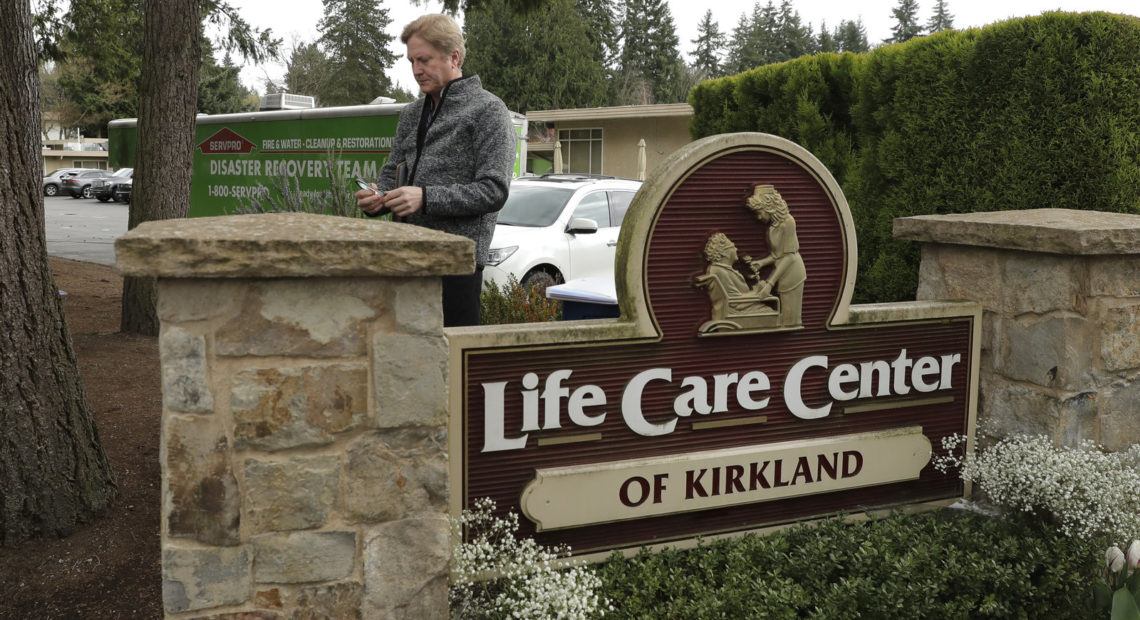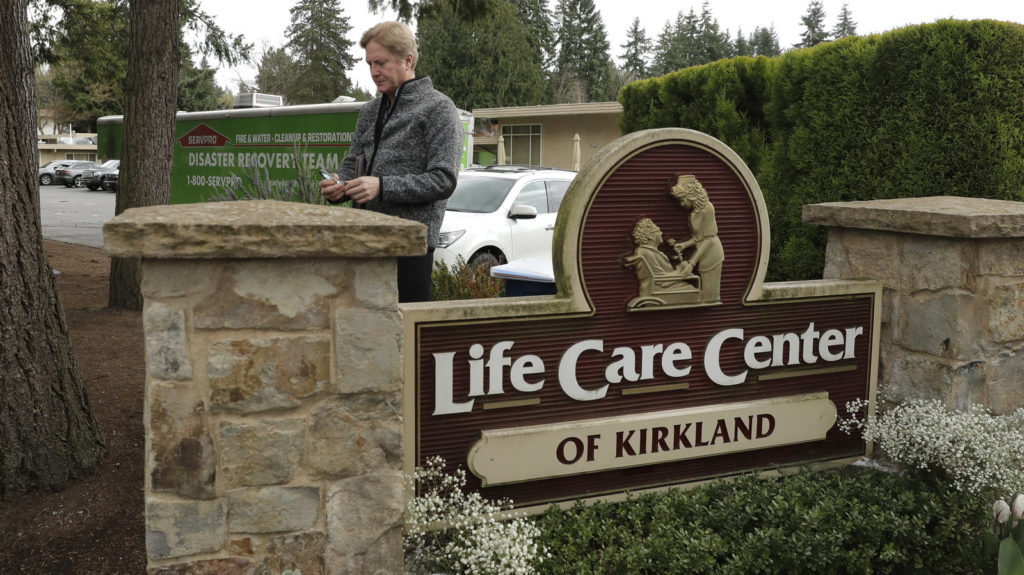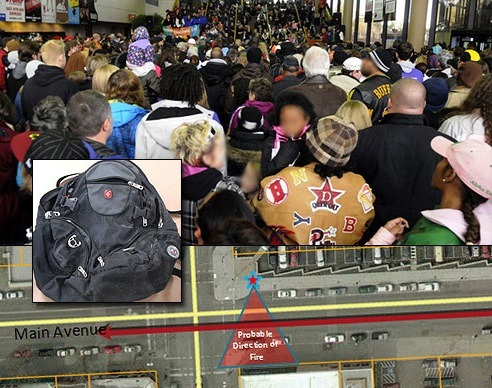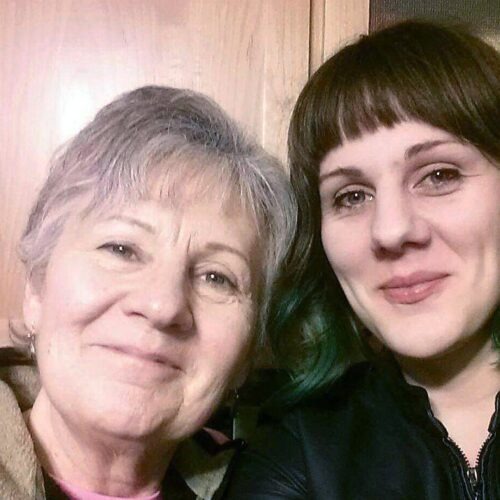
COVID First Hit Long-Term Care In Puget Sound Region. Now It’s Hitting Home In Rural Areas
WATCH
On Tuesday, Washington Gov. Jay Inslee announced a three-week extension of the current business closure order – until January 4th. It comes with rising death and hospitalization rates across the state.
Some of the hardest hit places have been long-term care facilities in rural areas like Tonasket in Okanogan County, and in central Washington.
At least three care facilities in Grant County have reported outbreaks and deaths since a large wedding near Ritzville last month attended by some care facility staff who later tested positive for COVID-19. But a definitive connection between those outbreaks and the wedding remains unclear.
Correspondent Anna King says many of these areas were relatively less impacted compared to cities earlier this year.
“The health officials that I’m talking to said, yes, the disease maybe was delayed by a month or several weeks in coming to their community. But, once it took root it’s really hard to get out of these smaller communities. And they’re really having a hard time translating the urgency of we still need to wear masks. We still need to not see your friends,” King said on a recent episode of NWPB’s Uniquely NW News. “And now these rural systems are at the breaking point.”
King says that in the Wenatchee area, the CEO of the major central Washington health system, Confluence Health, expects hospitals in Washington to be full and have to turn people away later this month. “And he said, if you have a heart attack or if you have a stroke, there might not be a bed for you.”
Watch the full episode above. See more from NWPB’s Uniquely NW News and all NWPB videos on YouTube.
CONVERSATION HIGHLIGHTS:
(Edited for length and clarity)
On what happened with the long-term care facility, North Valley Extended Care, in Tonasket, Washington:
Each of these families has families and colleagues and people that know them. And the scale of it is really unsettling. So far in Tonasket, 32 residents have come ill with COVID-19, 20 staff members which is about half of the total staff in the facility have also been sickened with COVID-19 and 12 people have died so far (as this was taped on Dec. 2, 2020), that’s as of yesterday’s numbers. The first person was asymptomatic that they found in a test that was a routine test earlier in November. And then by the time the test came back many people were showing symptoms as how it was described to me. And then the deaths started happening rapidly over the Thanksgiving weekend. It was just a weekend of terror as one person after another passed away from COVID-19.
On whether COVID-19 and its effect on long-term care facilities was originally seen more as a “city issue” given how it first exploded in the Puget Sound region, and is now hitting closer to home to more rural communities:
The health officials that I’m talking to said, yes, the disease maybe was delayed by a month or several weeks in coming to their community. But, once it took root it’s really hard to get out of these smaller communities. And they’re really having a hard time translating the urgency. Now, a year later, a year into this pandemic, yes, you’re tired but we still need to isolate. We still need to wear masks.

Tim Killian, a spokesman for Life Care Center in Kirkland, Wash., prepares to give a daily briefing to reporters in February after the first identified U.S. outbreak there killed multiple residents. CREDIT: Ted S. Warren/AP
We still need to not see your friends. We still need to like be careful at the grocery store. These messages are just getting old and worn out even though it’s still very urgent as a situation. And now these rural systems are at the breaking point. One health System CEO, I interviewed … said in the Wenatchee area he expects all hospitals in Washington to be full and have to turn people away later this month. And he said, if you have a heart attack or if you have a stroke, there might not be a bed for you. If you walk into a hospital in about two weeks. It’s `just a very dire situation all across the rural landscape of the Northwest.
On the stresses to public health systems and employees during this time:
Everyone I have talked to so far is just dog tired. They’ve been fighting this pandemic since winter. They still don’t have enough PPE or testing equipment. They still don’t have enough staff. One person I talked to a health director Moses Lake said she’s had a posting for months for a contact tracer. And they just can’t fill that position. Some of the staff are quitting because they’re too exhausted. They’re too tired of fighting and they just are burnt out and tired. And now, they have to pick up for perhaps some of the hardest part of the fight that they’ve had all year just in advance of possibly getting some vaccines into the community.
Related Stories:

10 Years After White Supremacist Tried To Bomb Spokane’s MLK Parade, Extremism Is More Mainstream
This week marks 10 years since a white supremacist attempted to bomb the Martin Luther King Junior Day parade through downtown Spokane. The bomb was discovered and defused just in the nick of time. But the effects of extremist ideologies in the region lived on. Journalist Leah Sottile examined that in the podcast Bundyville, from Oregon Public Broadcasting. Leah spoke with Scott Leadingham in August 2019 about the podcast’s second season and the anti-government movement in the region.

Yakima Journalist Who Lost Her Mom To COVID: Don’t Let Gatherings This Season Take Yours
Emily McCarty is a Yakima-based reporter for Crosscut/KCTS. Her mom, Mary, died in a Spokane hospital in November, four days after being diagnosed with COVID-19. McCarty wrote about her mom and her family’s personal experience in an essay titled “I lost my mom to COVID-19. Don’t let the holidays steal yours.”

Much More Than A Spotted Owl Fight: Northwest ‘Timber Wars’ Of 30 Years Ago Revisited In Podcast
Here’s a quick game: When you hear, “spotted owl,” what do you think of? If you were in the Northwest in the 1980s and 1990s, you may think of logging and a fight over endangered species versus jobs and lumber towns surviving. But there’s much more background in that fight than you may remember.















